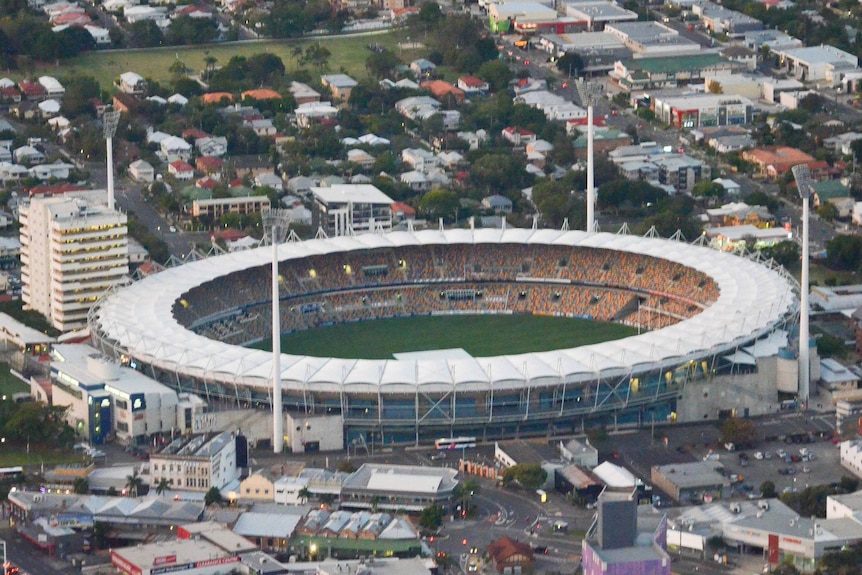Table of Contents
The AFL, its clubs and its players are under media attention this week over drug policy in Australia’s richest sporting league.
Headlines across the country have spread allegations made in parliament about unofficial drug tests and players faking injuries to cover up positive results.
The league is no stranger to controversies surrounding the use and abuse of illicit drugs by its players.
But while players can be caught possessing or using the same drugs, the penalties can often differ greatly, creating confusion among football fans as to the actual rules.
This is how the AFL’s drug policy works.
What is the AFL’s policy on illicit drugs?
The AFL has two anti-drug policies at play, working together.
The first is the Australian Football Anti-Doping Codewhich is enforced by Sports Integrity Australia (formerly ASADA), the national anti-doping organisation.
This code restricts the use of players Prohibited substances established by the World Anti-Doping Agency. (AMA).
Some of these substances, such as anabolic steroids, growth hormones, and diuretics (which can be used to mask other performance-enhancing drugs), are prohibited at all times.
Other substances, such as cocaine and cannabis, are only prohibited “in competition.”
That means players will only violate the code if they test positive for the banned substance between the end of a game and 11:59 p.m. the night before.
However, Sports Integrity Australia does not have the authority to test players outside of competitions.
As a result, The AFL also employs an illicit drug policy. (IDP), which it says “specifically addresses illicit substance use outside of competition and focuses on the health and well-being of players.”
In a statement on Wednesday, the AFL said it specifically uses the IDP to prevent players from breaching the Australian Football Anti-Doping Code.
“If the test shows that there is still a substance in the player’s system, a doctor will take steps to prevent a player from participating in training and/or an AFL match, both for his or her own health and well-being and because he or she has illicit substances. in their system. on match day may be considered a performance enhancement and a breach of the Australian Football Anti-Doping Code,” the statement said.
Due to doctor-patient confidentiality, a player does not necessarily have to inform the club of a positive test.
What are the differences in sanctions?
The AFL says the two policies have different objectives – one to protect the welfare of players and the other to protect the integrity of the game – and therefore the penalties for running aground also differ.
Under the AFL Anti-Doping Code, if a player intentionally takes a banned substance to gain an advantage, they are subject to a maximum four-year ban.
However, if it can be proven that the violation was unintentional, the maximum penalty is two years and can be reduced further if the athlete can demonstrate that the ingestion was not related to athletic performance.
When Port Adelaide’s WIllie Rioli was caught with traces of cannabis in his urine in a match-day test while playing for West Coast, he was subjected to a two-year suspension, exacerbated by his attempt to evade the test.
Former Gold Coast ruckman Brayden Crossley was handed a one-year ban after testing positive for cocaine following a NEAFL match, while former St Kilda player Sam Gilbert was handed a two-year ban for also test positive for cocaine on a match day in the VFL.
These are examples of sanctions imposed by the AFL when it believes the Anti-Doping Code has been breached.

But violations of the provisions on internally displaced persons are punished less severely.
St Kilda’s Brad Crouch and Geelong’s Tyson Stengle, both playing for Adelaide at the time, were handed two- and four-match bans respectively after South African police caught them in possession of an illicit substance in 2020.
Meanwhile, Hawthorn’s Jack Ginnivan, playing for Collingwood, missed the first two games of the 2023 season after being caught taking illicit drugs in the off-season.
Under current AFL rules, players caught breaching the IDP are subject to a three-strike system.
Upon first detection, a player will be fined $5,000 and will also undergo counseling and targeting testing.
After the second strike, the player’s name is made public and he serves a four-game suspension.
A third strike carries a 12-game suspension.
What do experts say about politics?
Former ASADA CEO and president Richard Ings said he supports the AFL’s policies, noting it is one of the few Australian sports to have an out-of-competition illicit drug policy.
“I’ve always thought it’s a very strong policy,” Ings said.
“It is absolutely correct that when the AFL and clubs are aware that a player has used illicit drugs out of competition, they prevent them from violating WADA rules and prevent them from entering the field of play and cheating in competition.”
However, Ings said a problem could arise when players were forced to mislead the public about their health status when they are expected to play.
“This is a really contentious issue for the AFL, and it can only be resolved if the AFL decides: do we have confidentiality? Or do we not have confidentiality and publicly announce every illicit drug positive?” he said.
The AFL Doctors Association has expressed its full support for the IDPs and the confidentiality it allowed.

AFLDA president Barry Rigby said the IDP is based on providing a structure of support and care for players.
“It is specifically not intended to be punitive and over the years has been based on trust and confidentiality between the player and the club doctor,” Dr Rigby said.
“We maintain transparent communication with the AFL, ensuring that any substance use concerns are handled discreetly and in accordance with medical ethics, AFL guidelines and the WADA code.”
What is the future of illicit drug policy?
The current version of the Australian Football Anti-Doping Code has been in force since January 2021, and WADA updates its list of prohibited substances each year.
The IDP is being reviewed this year, in cooperation with the AFL Players’ Association (AFLPA).
The AFLPA said it supports the AFL’s position on drug policy and reiterated that players voluntarily accept the Illicit Drugs Policy.
“The AFLPA remains committed to reviewing the IDP in 2024 with the AFL and we are working with experts to ensure it remains best practice,” an AFLPA spokesperson said.
The review is also expected to soon subject AFLW players to the same Illicit Drugs Policy framework that male players are subject to.
After Sydney players Alexia Hamilton and Paige Sheppard were charged by New South Wales Police with possession of an illicit substance in December last year, they were banned by the AFL Integrity Unit for “improper conduct” in place of an IDP violation.

The AFL has admitted the IDP “can be improved” but has remained adamant the system is working properly to protect players.
“The AFL must always make decisions that seek to balance competing rights and interests,” the AFL said.
“We make no apologies that club and AFL doctors take the correct steps to ensure that any player they believe has an illicit substance in their system does not participate in any AFL match and that doctor confidentiality and the patient is respected and respected”.


